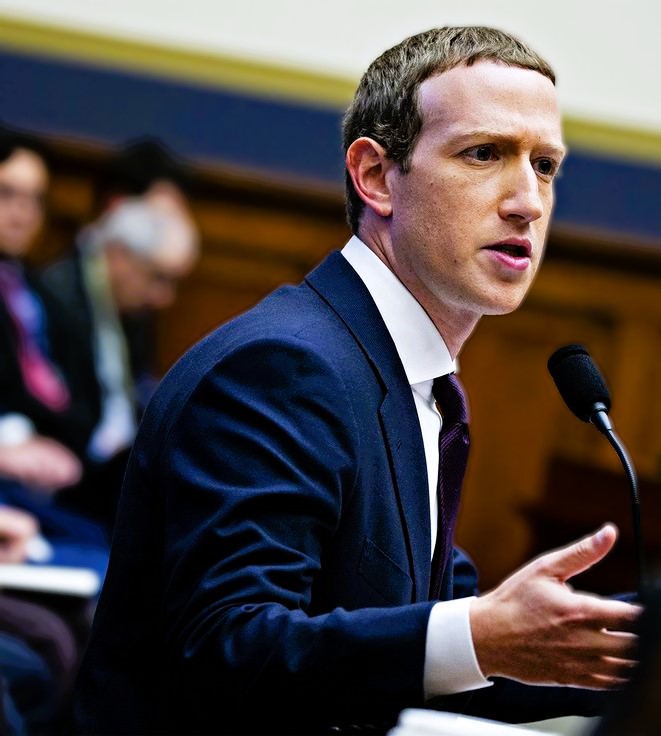
In a startling revelation, Mark Zuckerberg, CEO of Meta (formerly Facebook), stated that the Biden administration exerted pressure on his company to censor content related to COVID-19 during the height of the pandemic in 2021. This claim has reignited debates about the role of social media platforms in moderating content and the extent of government influence over these decisions. The statement, made during a recent public appearance, has drawn both criticism and support, highlighting the complex and contentious relationship between big tech companies and the government.
The Allegations, Mark Zuckerberg
Mark Zuckerberg’s assertion that Meta was pressured to censor COVID-related content by the Biden administration has sent shockwaves through both the tech and political communities. According to Zuckerberg, the government’s requests centered around suppressing what it deemed “misinformation” related to COVID-19, including posts about vaccine efficacy, treatment methods, and the origins of the virus. The pressure allegedly came from high-ranking officials who were concerned about the spread of false information that could undermine public health efforts.
Zuckerberg did not provide specific details about the nature of the pressure or the exact content that was targeted. However, his comments have raised questions about the balance between combating misinformation and upholding free speech. Critics argue that government intervention in content moderation could lead to censorship and the suppression of legitimate debate, while others believe that social media platforms have a responsibility to prevent the spread of harmful misinformation.
The Broader Context
The relationship between the U.S. government and social media companies has been under intense scrutiny for several years. The COVID-19 pandemic only intensified these concerns as misinformation about the virus spread rapidly online. Public health officials and political leaders were vocal about the dangers of false information, arguing that it could lead to vaccine hesitancy, disregard for public health measures, and ultimately, more deaths.
In response, platforms like Facebook, Twitter, and YouTube took unprecedented steps to moderate content. These measures included labeling posts with fact-checks, removing content deemed false or misleading, and even banning users who repeatedly violated their policies. While some praised these efforts as necessary for public safety, others saw them as overreach and a violation of free speech rights.
Zuckerberg’s claim that Meta was pressured by the Biden administration to engage in such censorship adds a new dimension to this ongoing debate. It suggests that the government may have played a more direct role in shaping the narrative around COVID-19 than previously thought. This revelation could have significant implications for how social media companies operate and how they respond to government requests in the future.
The Political Response, Mark Zuckerberg
Zuckerberg’s comments have already sparked a political firestorm. Critics of the Biden administration, particularly those on the right, have seized on the allegations as evidence of government overreach and censorship. Republican lawmakers have long accused social media platforms of being biased against conservative viewpoints, and Zuckerberg’s statement is likely to fuel these claims further.
Senator Ted Cruz, a vocal critic of big tech, tweeted in response to Zuckerberg’s revelation, calling for an investigation into the Biden administration’s actions. “This is a serious accusation,” Cruz wrote. “If the government pressured Meta to censor content, that’s a blatant violation of the First Amendment.”
On the other hand, some Democrats and public health advocates have defended the administration’s actions, arguing that during a public health crisis, extraordinary measures are sometimes necessary. They contend that the spread of misinformation during the pandemic posed a significant threat to public safety and that social media platforms had a duty to help mitigate this danger.Mark Zuckerberg
The Implications for Meta and Beyond
The implications of Zuckerberg’s claims extend beyond just Meta. If true, they raise questions about the relationship between the government and other social media platforms during the pandemic. Were similar pressures applied to Twitter, YouTube, or other tech giants? How much influence did the government have over the content moderation policies of these companies?Mark Zuckerberg
For Meta, this revelation could further erode trust in the platform, which has already faced numerous scandals related to privacy, misinformation, and its role in shaping public discourse. The company has tried to rebrand itself and focus on building the “metaverse,” but controversies like this one keep pulling it back into the fray of political debates.Mark Zuckerberg
Moving forward, this situation may lead to calls for more transparency in how social media companies interact with government agencies. It could also reignite discussions about the need for regulation to prevent government overreach while still addressing the very real problem of misinformation.
Conclusion
Mark Zuckerberg’s claim that Meta was pressured by the Biden administration to censor COVID-19 content in 2021 is a bombshell that could have far-reaching consequences. It highlights the delicate balance between free speech and public safety, the power of big tech companies, and the role of government in regulating online content. As this story unfolds, it will likely become a significant point of contention in the ongoing debate over the future of social media and its impact on society.Mark Zuckerberg